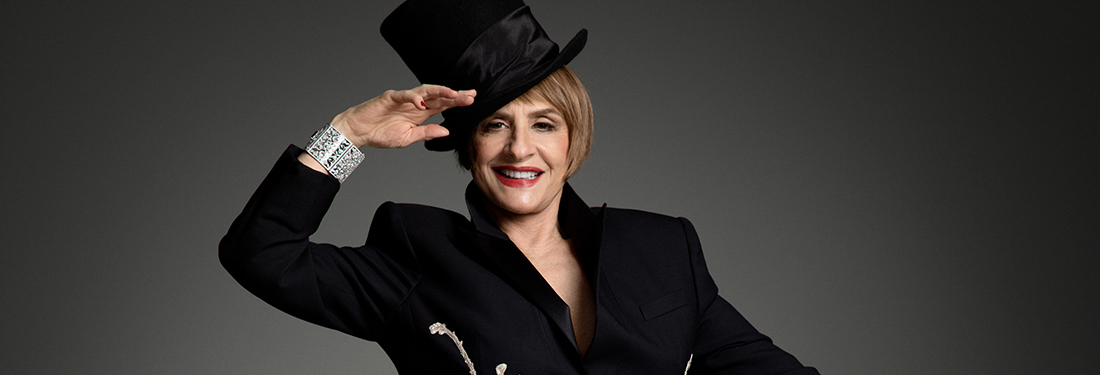
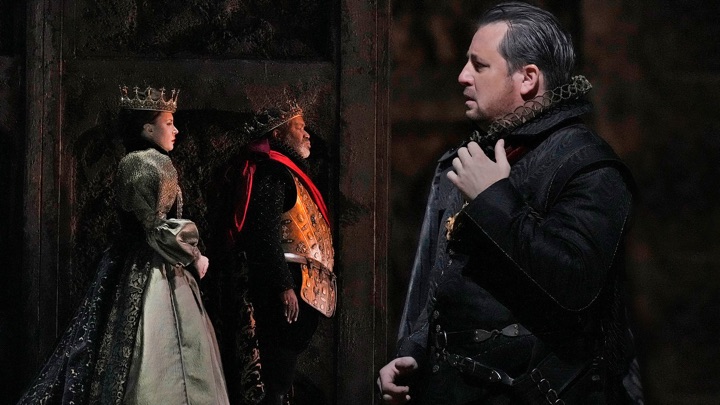
And yet it must be acknowledged that just as Sher had led Quinn Kelsey to a strikingly nuanced interpretation of Rigoletto, McVicar helped transform Matthew Polenzani into an astonishing Don Carlos, a complex, heroically sung portrayal that should embarrass the many skeptics who had been whining about his “miscasting” since it was announced.
Like most of the other principals, Polenzani relished the French text and proved its “rightness” for Verdi’s lines. While not a hot-blooded Carlo in the past Met mold of Richard Tucker or Franco Corelli, he revealed a heartbreakingly broken Prince whose struggle to find his place in his father’s cruelly austere world ultimately cost him his life.
The evening’s surprising final tableau was likely the hot topic of many post-performance debates. Stagings of the opera’s ending rarely satisfactorily answer basic questions of just who is that mysterious Monk and what happens to Carlo/s. This time around, confusion reigned as the Philippe interrupted the sad farewell between Élisabeth and Carlos, and amid the mayhem the Monk in a glittering crown made his grave pronouncement.
The soprano then popped her high note and when as the cataclysm quickly died away, the back wall opened to reveal a blinding white light from which (the ghost of) Rodrigue emerged to greet the dying Carlos. Their final embrace looked a bit confused: while one might have expected a Pietà-like image, Rodrigue was left kneeling next to the prostrate Carlos. McVicar’s gay apotheosis for the loving pair? Given how touchy-feely Polenzani and Étienne Dupuis were throughout the opera’s nearly five-hour span, this would seem one viable interpretation.
After debuting in 2018 as Marcello and then filling in as the Count in Le Nozze di Figaro just prior to the company’s pandemic closure, Dupuis was likely unfamiliar to many in Monday’s Don Carlos audience. However, after his vibrantly charismatic Rodrigue (seemingly styled by Tomás de Flandres) I went home to search—in vain, alas—for when the French-Canadian baritone would be appearing at the Met next season.
Polenzani’s vulnerable, unworldly Carlos depended heavily on his stalwart friend, and their numerous scenes together—particularly in the unfamiliar version of their first encounter at St. Just—were clearly suffused with reciprocal fraternal love.
Dupuis sang strongly until he suddenly lost pitch in “C’est mon jour supreme,” his moving aria to Carlos in prison. Perhaps Rodrigue might just be a touch too heavy for him, but his burnished, elegant baritone did justice to one of the composer’s most appealing and noble characters. But his initially witty byplay with Jamie Barton’s suspicious Eboli turned toxic when she threatened his beleaguered friend in the potent garden scene.
Like many Ebolis, Barton found the Veil Song a particular challenge; her striking solutions to the odd melismatic passages ending each verse didn’t fully convince. But once she became a woman scorned, she blazed with fury, though that venom quickly turned to bottomless remorse.
Her torrential “O don fatal” rightly brought down the house but just as impressive was her choked admission of guilt to the shocked Élisabeth. While I didn’t spend a moment pining for the absent Elina Garanca, I’d still rather hear Barton in Wagner or French roles like Didon than in Verdi (she has her first Amneris coming up in Madrid).
Her sad, proud queen found Sonya Yoncheva in one of her most congenial Met roles. It must be admitted that her highest notes often failed to bloom and soar in quite the way one wished, but her plangent, covered tone revealed Élisabeth’s thwarted hopes ever so movingly especially in her three wrenching duets with Polenzani.
The farewell to the Countess of Aremberg was awkwardly staged and didn’t make much of an effect, but her spellbinding 11 o’clock number “Toi qui sus le néant” temporarily made everyone forget that awful eyesore of a set we’d been staring at since 6:30!
And, yes, she never loved her husband, but who could love Eric Owens’ irredeemably gritty Philippe, so blandly sung that nearly anyone else would have been a better substitute when Günther Groissböck jumped ship—or was GG pushed? One candidate was right there on stage: Matthew Rose who shone in the Monk’s very brief lines.
True, Owens did pull it together momentarily for a potent “Elle ne m’aime pas.”
His director wasn’t much of a help as Philippe just wandered around blankly during his encounter with the thundering, doddering Grand Inquisiteur of John Relyea. In vain, we hoped for a beautiful legato from Owens for the “Lacrimosa” duet with Carlos after Rodrigue’s assassination but all we got was more gravel.
Nézet-Séguin’s spacious, deeply felt reading was much different from his more youthful, vigorous one for the premiere of the Nicholas Hytner production in 2013. But why did that perfectly acceptable staging need to be jettisoned after just nine years for one that didn’t improve on it?
One wonders why the Met didn’t try a Neueinstudierung rather than spending millions(?) of dollars on (admittedly) gorgeous new, all black costumes by Brigitte Reiffenstuel and a set that made the lush Fontainebleau forest barren and cramped the inscrutable auto-da-fé. Just what McVicar’s barefoot male dancer clad in black spandex and shiny multi-colored streamers shimmying about had to do with the public execution of heretics was anyone’s guess. No choreographer was credited for that terpsichorean atrocity—no wonder!
As much as I often admire Nézet-Séguin’s conducting—he drew really exquisite playing from the orchestra, I continue to question some of his musicological decisions. The new production of La Traviata several years back couldn’t make up its mind about cuts (but why cut Traviata at all?!), and in Don Carlos it was never clear why which music was included—or more troublingly—which was omitted.
The opera’s synopsis on the Met website clearly suggests that the scene at the beginning of the third act between Élisabeth and Eboli where they exchange clothes was being performed; however, it was not, nor was the brief duet between the women just prior to “O don fatal.” Monday’s version of the insurrection after Rodrigue’s death did include a brief scene of Eboli saying goodbye to the queen, but overall that riot was less effective than the one usually performed.
The options available for a Don Carlos are indeed dizzying as Andrew Knapp’s essential three-part investigation here on parterre box attests.
But one was left wondering if a serious, clear-headed plan for a cohesive Met Don Carlos existed. I missed the carefully thought-out rationale that I elicited from Will Crutchfield when he conducted both Don Carlos and Les Vêpres Siciliennes at Caramoor in 2013 .
Though I’ve happily attended many Met performances of its 5-act, Italian Don Carlo, I’m looking forward to this fall’s revival (with TBA as Elisabetta) of the 4-act version. But, boy, on the other hand, I am not eager to sit through again McVicar’s 11th (!) Met production—with two more—Medea and Fedora—due next season.
While several have been reasonably effective–Il Trovatore, Adriana Lecouvreur and Roberto Devereux, many like Norma, Cavalleria Rusticana and Agrippina—have been real duds. Can the opera world be that parched for good directors that the Met needs more than 20 current productions by Sher and McVicar?
While Don Carlos produced many moving moments, the evening began with a real heart-stopper. After a bumbling introduction by Gelb, a moment of silence was followed by the Met chorus assembled on stage for an overwhelming rendition of the Ukrainian National Anthem.
One noticed in particular the man in mufti at the center, hand over his heart, singing from memory! We were all reminded that the horrors of political and religious persecution in Don Carlos are not at all a thing of the past.
Photo: Ken Howard / Met Opera
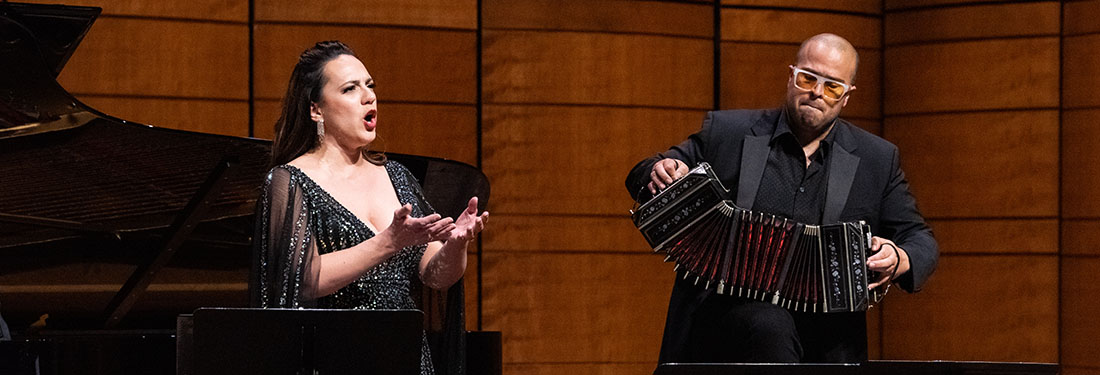
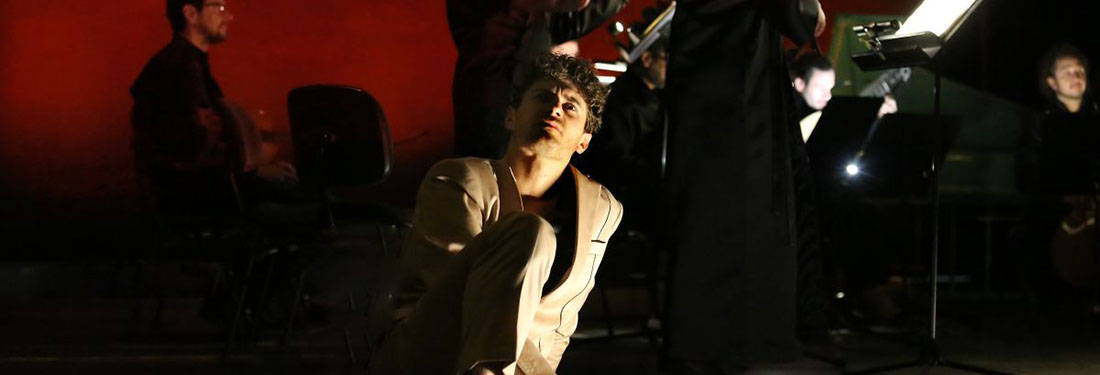
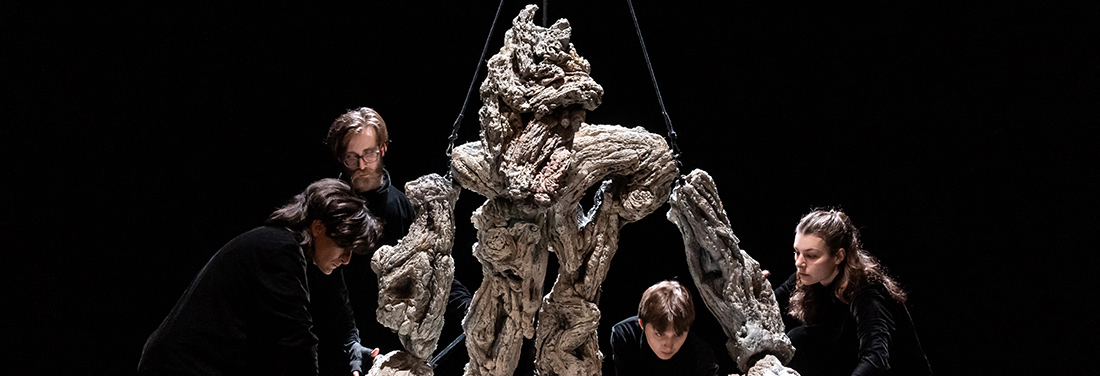
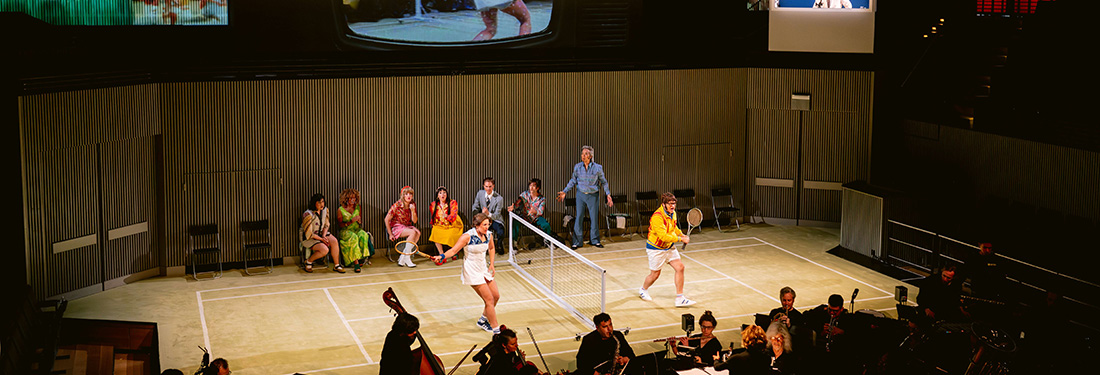
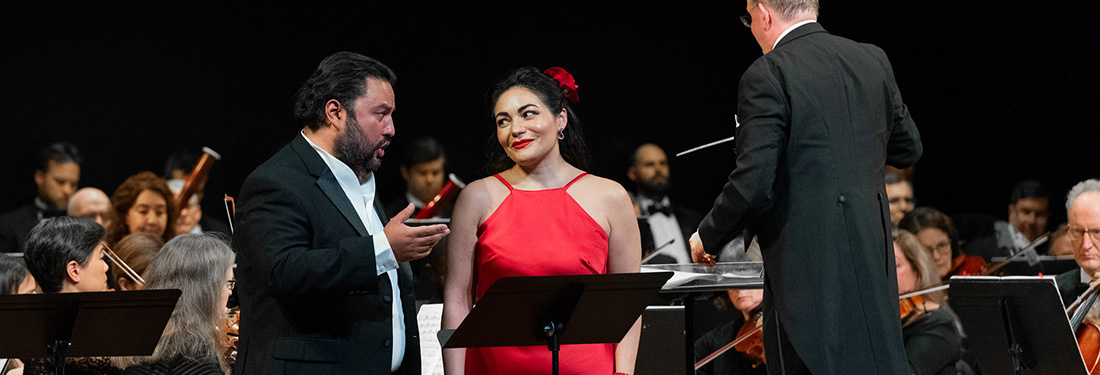
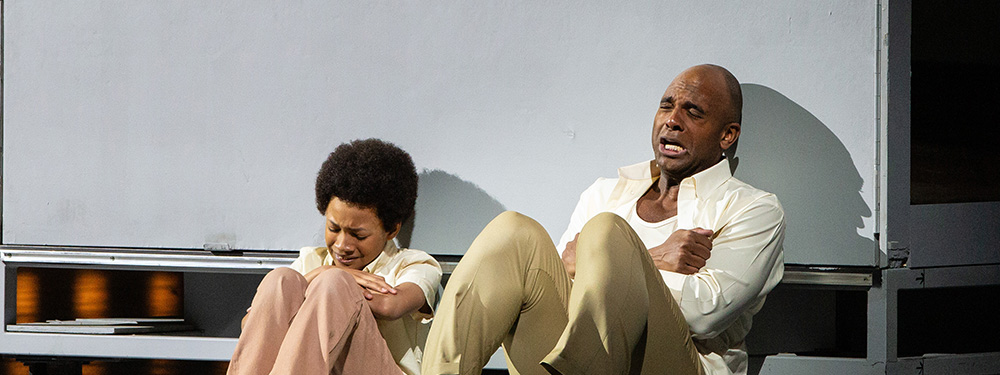
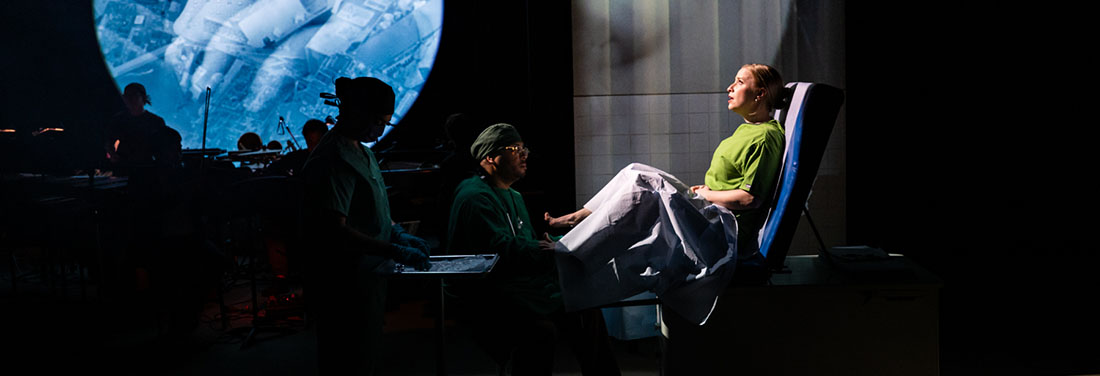
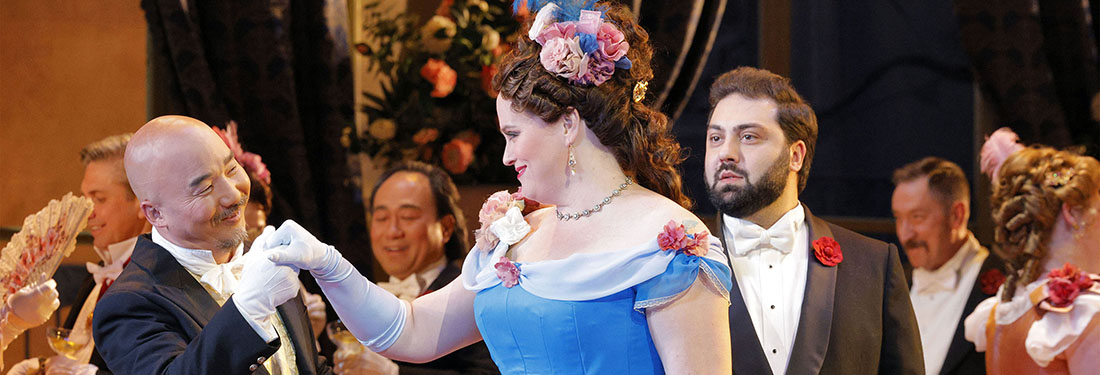
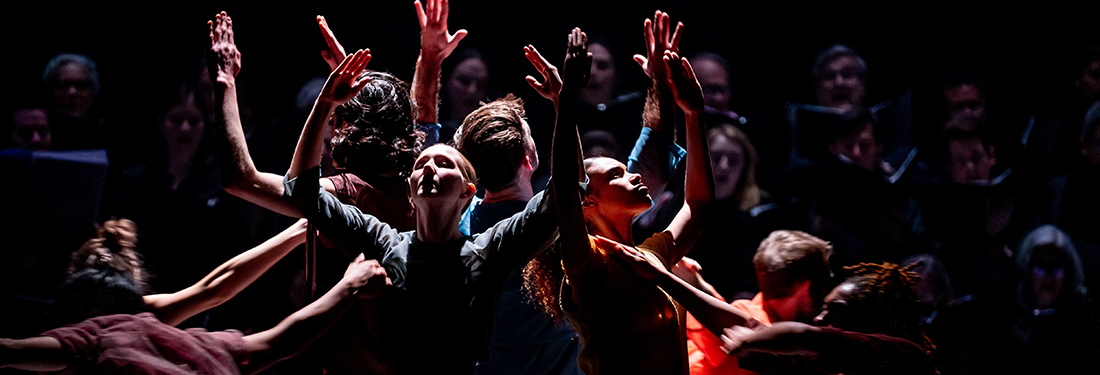
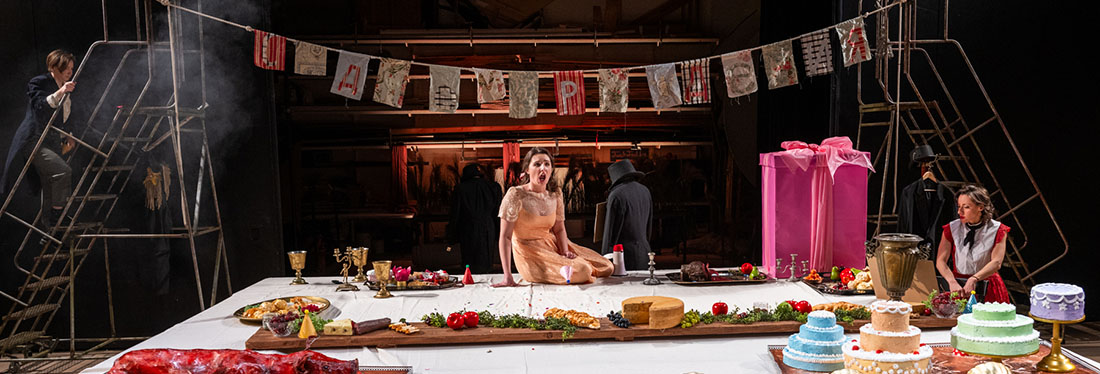
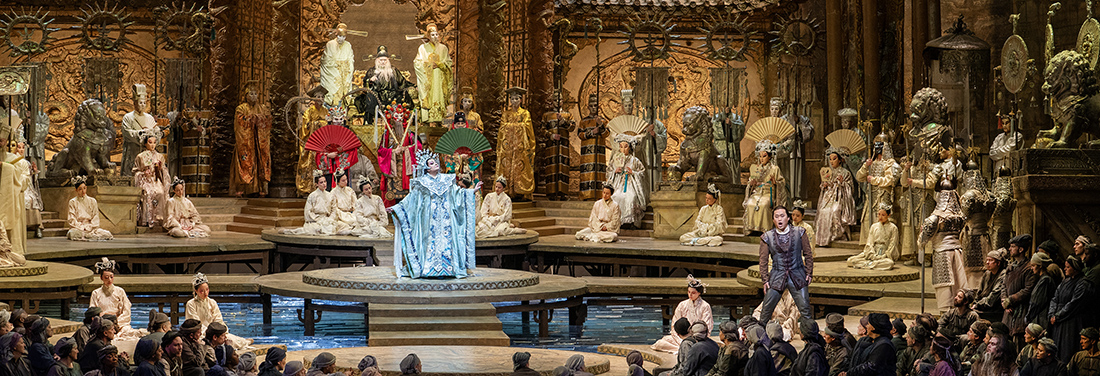
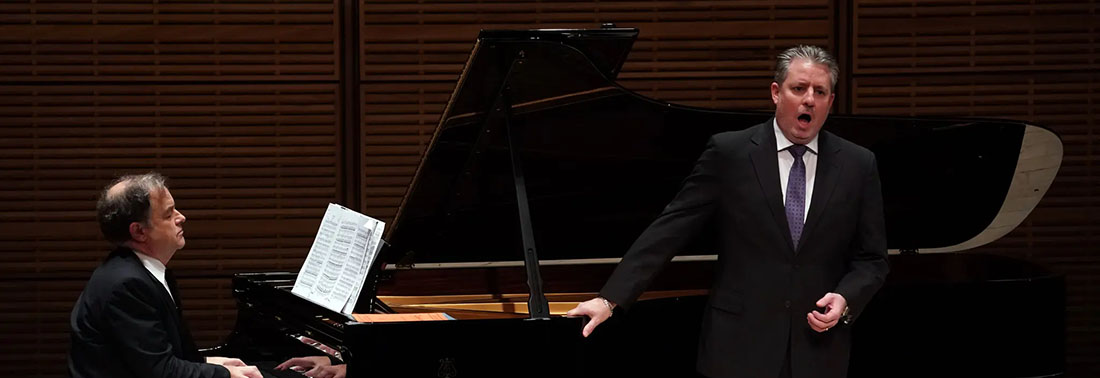
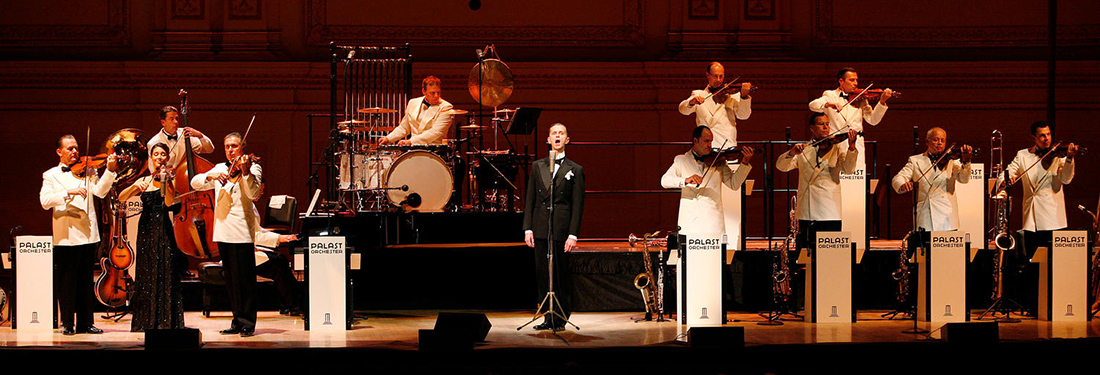
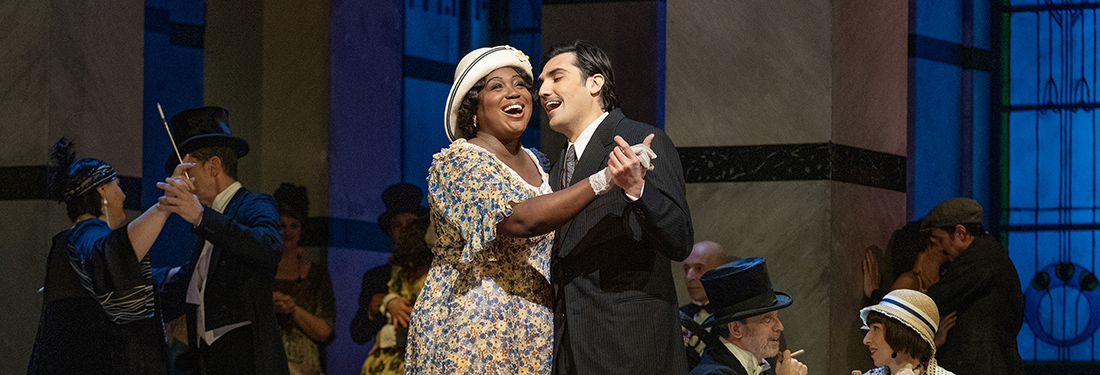
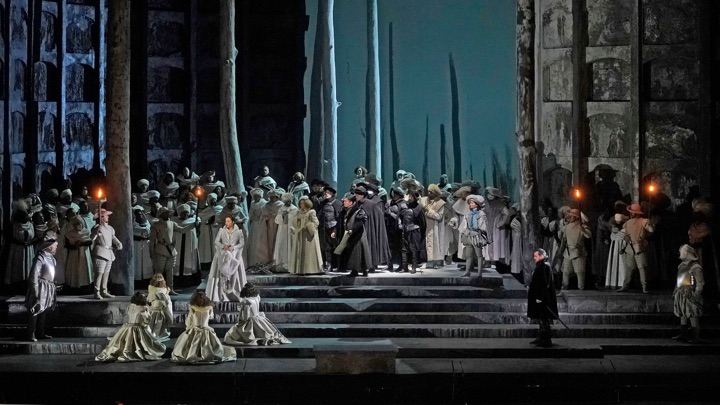
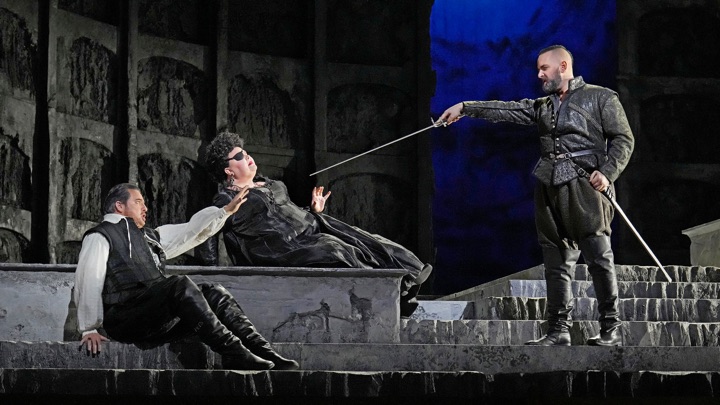
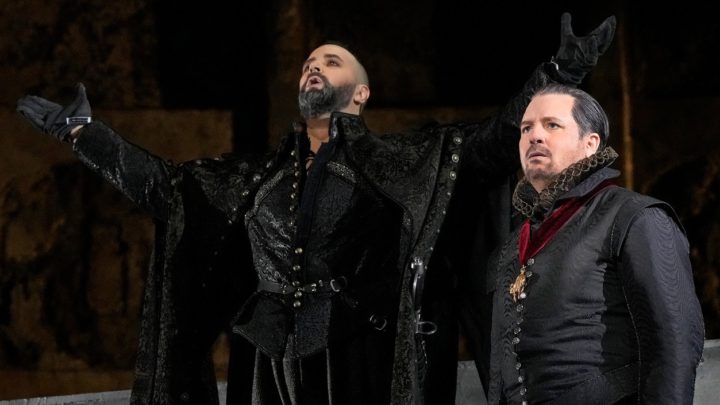




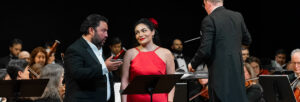
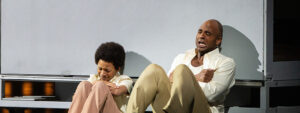



Comments